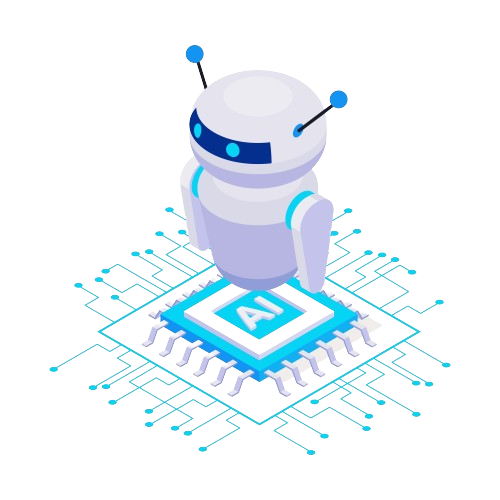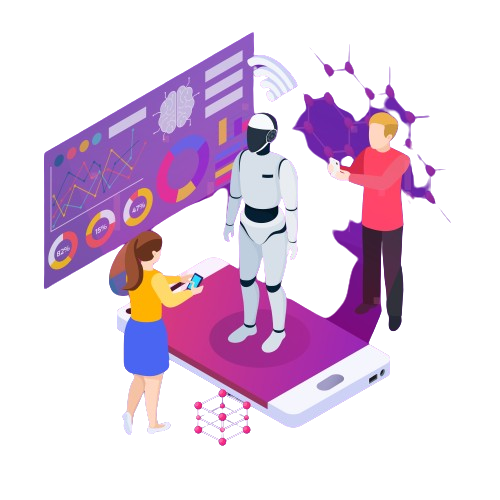
In the ever-evolving landscape of the era, wherein innovation is the heartbeat of development, the role of tech aid stands as a pivotal pillar in ensuring the easy functioning of our digital world. As customers navigate via an array of devices, applications, and platforms, the demand for green and responsive tech support has in no way been extra-stated. At the forefront of this transformative adventure is Artificial Intelligence (AI), a groundbreaking pressure reshaping how we perceive and engage with tech support.
AI’s influence on tech support extends a ways past mere automation; it represents a fundamental shift inside the paradigm, introducing competencies that pass hand-in-hand with human ingenuity. This article embarks on a complete exploration of how AI is spearheading the revolution in tech help.
From automating trouble resolution to ushering in the technology of personalized person studies, the mixing of AI isn’t always simply changing the face of tech help but redefining the very essence of consumer interactions inside the virtual realm. Join us on this insightful adventure as we unveil the elaborate methods in which AI transformation tech assistance and shaping the destiny of patron help.
The Role of Human Resource in AI-BasedTech Support
In the technology of AI-based tech guides, the position of Human Resources (HR) becomes pivotal in orchestrating a seamless fusion of artificial intelligence and human knowledge. HR experts play a crucial component in identifying and obtaining skills with the necessary abilities to increase, implement, and hold AI structures.
They ensure a harmonious collaboration between AI algorithms and human marketers, fostering work surroundings where personnel can adapt to evolving technologies. Additionally, HR oversees the ethical use of AI, selling a balance that complements performance while upholding ethical standards in consumer interactions. As AI reshapes tech support, HR turns into the linchpin for a body of workers that thrives in this transformative landscape.
Challenges and Limitations of AI in Tech Support
As Artificial Intelligence (AI) continues to reshape tech guides, it is imperative to acknowledge the challenges and limitations inherent in this transformative journey. Understanding these obstacles is important for devising effective techniques and ensuring a harmonious integration of AI technologies.
1. Limited Contextual Understanding
Limited contextual know-how poses a giant challenge for AI in tech assist. AI systems, even as adept at processing statistics, regularly warfare with nuanced language and context intricacies. Misinterpretations of personal queries can lead to inaccurate or irrelevant responses. This drawback hampers the capability of AI to provide unique answers, in particular in industries with specialized terminology or problematic eventualities. Striving to decorate contextual comprehension stays a key focus for overcoming this obstacle within the pursuit of extra powerful and person-friendly AI-driven tech assistance.
2. Dependency on Quality Data
The efficacy of AI in tech aid hinges on the crucial element of nice information. The accuracy and reliability of artificial intelligence structures are, without delay, correlated to the richness and diversity of the datasets used for schooling. Challenges arise when biases, inaccuracies, or insufficient range permeate the facts, doubtlessly main to improper effects.
Maintaining an excessive popularity of information quality is an ongoing imperative, traumatic meticulous curation and continuous efforts to minimize biases, making sure AI algorithms deliver particular and unbiased solutions in tech support eventualities.
3. Over Reliance on Automation
The overreliance on automation in tech guides introduces a potential drawback, distancing interactions from human contact. While automation complements performance, sure conditions call for the nuanced information, empathy, and emotional intelligence that human retailers bring.
Relying entirely on computerized responses may also bring about a lack of adaptability to precise or complicated user eventualities, impacting the general niceness of client reviews. Striking a balance between automation and human intervention is critical to ensure personalized, empathetic, and effective tech support solutions.
4. Security and Privacy Concerns
Security and privacy worries loom prominently inside the integration of AI into tech assistance. The sizable data access required for AI-pushed answers raises apprehensions approximately safeguarding consumer statistics. Potential breaches should compromise touchy data and annoying stringent security measures.
Striking a delicate balance between leveraging records for personalized help and ensuring robust privacy protections is a vital task. Addressing those worries is essential for organizing user acceptance as true and ensuring the responsible implementation of AI in tech aid ecosystems.
5. Constant Evolution and Adaptation
In the ever-evolving landscape of AI-driven tech assist, constant evolution and edition stand as paramount demanding situations. The rapid tempo of technological improvements needs perpetual updates to algorithms and techniques. Staying ahead of emerging problems, enterprise traits, and consumer expectancies calls for proactive measures and vast sources.
The capacity to evolve swiftly not only ensures the continuing relevance of AI structures but also underlines the dynamic nature of the tech aid ecosystem, in which flexibility is a key determinant of sustained fulfilment.
6. User Trust and Acceptance
User consideration popularity is a pivotal factor in the hit integration of AI into tech assistance. Building confidence among users, who can be sceptical of computerised structures, requires obvious communique about AI talents and limitations. Addressing issues associated with activity displacement and ability errors fosters an effective belief.
Providing clean academic assets and emphasizing the augmentation, now not alternative, of human capabilities facilitates setting up a basis of consideration. Ultimately, person attractiveness hinges on demonstrating that AI enhances, as opposed to jeopardizes, the general high-quality of tech aid interactions.
7. Ethical Dilemmas and Decision-Making
Ethical dilemmas in AI-driven selection-making underscore the complexities of balancing technological performance with ethical concerns. As machines lack inherent moral reasoning, questions arise concerning the fairness and transparency of automatic selections.
Striking the proper stability needs a considerate method to navigate situations wherein human judgement and empathy are irreplaceable. Addressing moral concerns is paramount to make sure AI aligns with societal values, fostering belief and accountability inside the evolving landscape of choice-making.
Conclusion
As the symbiotic dating among AI and tech support deepens, organizations that include these technologies have an advantage in a competitive aspect. The ongoing revolution in tech support signifies a shift closer to an extra responsive, customized, and proactive method of client assistance. In this ever-evolving virtual landscape, AI’s transformative effect not simplest complements guide abilities, but additionally unites the degree for a destiny wherein generation meets purchaser desires with unparalleled efficiency. The adventure of tech guide’s evolution is inseparable from the rise of AI, pointing in the direction of a destiny in which client-centricity and technological innovation pass hand in hand.
You May Also Like To Read: Securing the Digital Realm:Importance of Cybersecurity




Leave a Comment